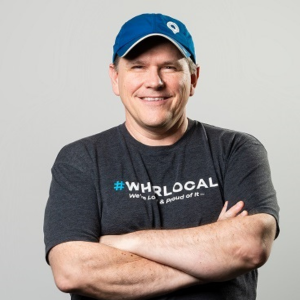On Monday, the Salem Area Chamber of Commerce held the season kickoff to it’s popular Forum Lunch series. Four leaders in Oregon’s education system gathered to discuss a topic that weighs heavily on the minds of many in the community: the future of education. Dr. Salam Noor (Mountain West Center For Community Excellence), Dr. Jesse Peters (President of Western Oregon University), Dr. Jessica Howard (President of Chemeketa Community College), and Superintendent Andrea Castañeda of the Salem Keizer School District shared their perspectives on how education must evolve to meet the challenges of the future. The discussion highlighted how changes in the educational landscape affect not only students but also the broader Salem Keizer community.
Education’s Evolving Purpose: Preparing for the Future
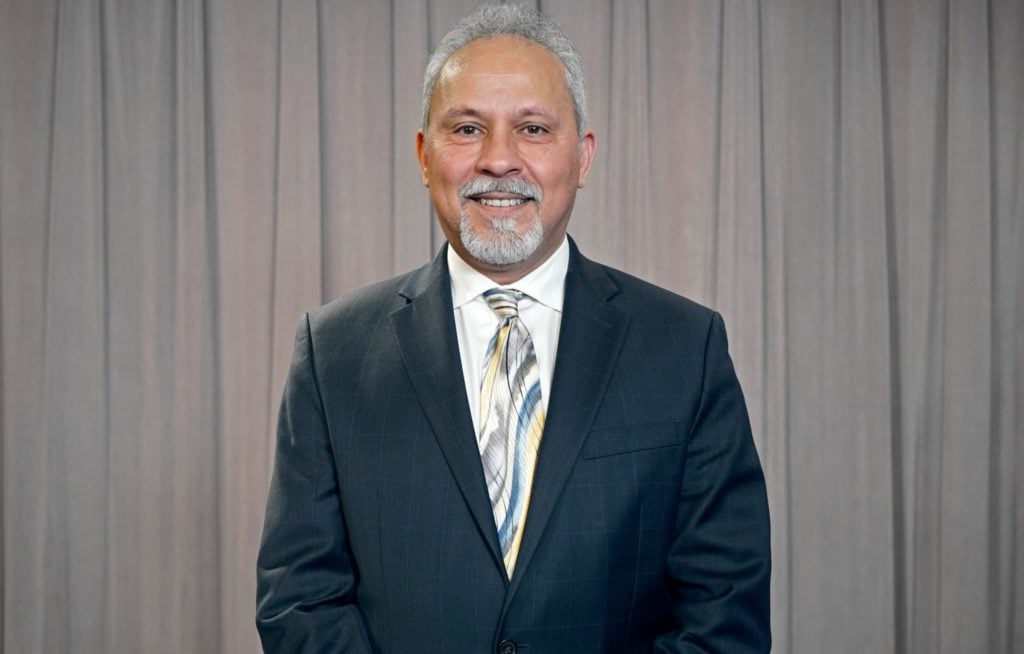
Photo Credit: WOU
Dr. Salam Noor, a well-known advocate for public education and a proud Salem resident, opened the discussion with a personal reflection on the importance of education. As a first-generation immigrant who found success through public schools and universities, Dr. Noor spoke not only from the viewpoint of an educator but also as a parent and grandparent. His concerns about the future of education are deeply personal, as he wonders whether his grandchildren will receive an education that prepares them for a rapidly changing world.
“Will school be the same as it was for me and their parents, or something that’s better and far more relevant to the world that they will live in 18 years from now, 13 years from now?” Dr. Noor asked. This question, he emphasized, is not theoretical. The world is changing at a pace that makes it crucial for schools to rethink how they engage students and prepare them for the future.
Dr. Noor’s concern touches on a critical theme: the need for education systems to be forward-thinking and adaptable. Rather than merely sticking to traditional methods, schools must evolve to offer more relevant, real-world experiences that help students discover their passions and equip them with skills for success.
Adapting to New Realities in Higher Education
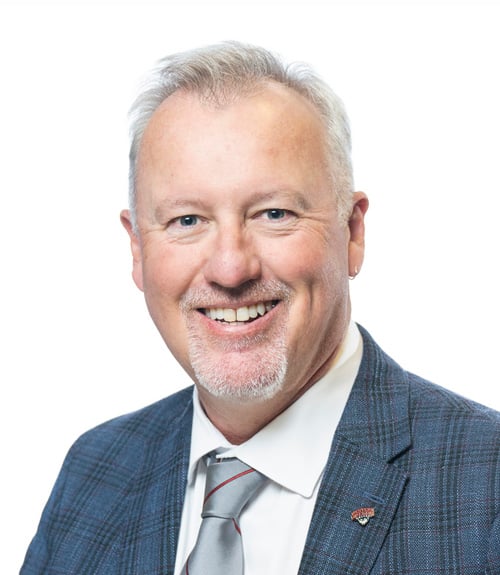
Photo Credit: WOU
At the university level, Dr. Jesse Peters, President of Western Oregon University (WOU), highlighted the importance of innovation. As higher education continues to change, so too must the strategies institutions use to engage students and prepare them for the workforce. WOU recently completed a strategic plan focused on “Education, Innovation, and Community,” which aligns perfectly with the need to look ahead.
“Things are changing, and education will change as the world changes,” Dr. Peters said, emphasizing that students now require more than traditional classroom learning. Western Oregon University has been developing new programs that focus on providing students with both academic and practical skills. For instance, WOU has expanded its Salem campus, turning it into a graduate center, and created the Organizational Leadership master’s program, which prepares students for high-level roles in various industries.
Dr. Peters also shared some compelling statistics about the impact of higher education. “82% of our student body are from Oregon, and 42% of our alumni remain in Marion, Polk, and Yamhill counties,” he said. These students not only build careers but also strengthen local economies and communities.
The Role of Community Colleges: A Vital Utility Player
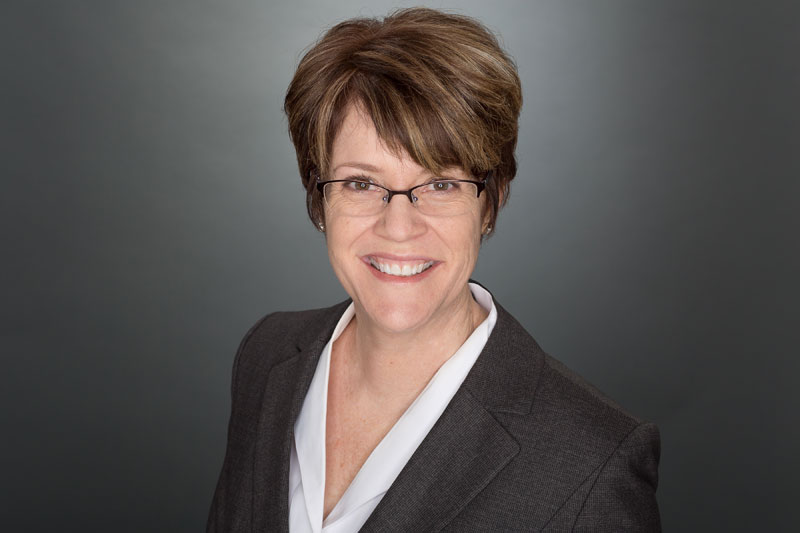
Photo Credit: Chemeketa Community College
Dr. Jessica Howard, President of Chemeketa Community College, described her institution as a “utility player,” a term that captures Chemeketa’s flexibility in meeting the diverse educational needs of the region. Chemeketa is instrumental in providing affordable and accessible education to over 18,000 students annually, many of whom are working adults or first-generation college students.
Dr. Howard explained the importance of Chemeketa’s role in workforce development, noting that 50% of jobs in Oregon require skills training. Chemeketa has focused on expanding its Career and Technical Education (CTE) programs, which are tailored to meet the region’s current and future workforce needs. From training paramedics to automotive technicians, the programs reflect a direct response to the demands of local industries.
One standout initiative is the Chemeketa Scholars program, which offers free tuition to high-achieving high school graduates. “Graduating high school students with a 3.5 GPA or above get free tuition if they come to Chemeketa. […] We’re the only community college in the state with such a program,” Dr. Howard said, showcasing the college’s commitment to removing barriers to higher education.
Power of Collaboration: K-12, Community Colleges, and Universities
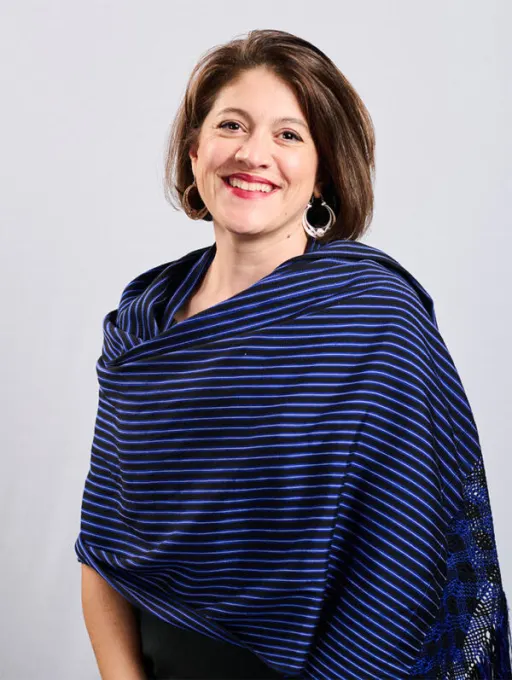
Photo Credit: Salem Keizer School District
A central theme throughout the panel discussion was the need for collaboration between different levels of the education system. Dr. Peters, Dr. Howard, and Superintendent Andrea Castañeda all stressed how important it is for K-12 schools, community colleges, and universities to work together seamlessly.
“We are as strong as they are strong,” Dr. Peters said, referring to the interconnectedness of educational institutions. This collaboration ensures that students have smooth transitions from high school to college, and later into the workforce. For example, Chemeketa’s Bachelor of Applied Science program in Leadership and Management, developed in partnership with WOU, is a direct response to local business needs. The program allows students with two-year CTE degrees to complete a bachelor’s degree while working full-time, which can then be a stepping stone to WOU’s Organizational Leadership master’s program.
Superintendent Castañeda highlighted the importance of preparing students in K-12 for higher education and career pathways. She pointed out that while many students are excelling in advanced courses like AP and IB, there is still a need to rethink how schools define success and readiness.
Are We Asking the Right Questions?
Perhaps the most thought-provoking part of the discussion came from Superintendent Castañeda, who raised important questions about the future of education. She encouraged the audience to consider whether the current system truly prepares students for the world they will face as adults.
“What do kids need to know these days?” she asked. Castañeda acknowledged that in an age where information is readily available, it’s no longer enough for students to simply memorize facts. Instead, students need to know how to learn, adapt, and solve problems in real-time.
She also questioned whether adding more traditional content to graduation requirements is the best way to prepare students. “Does adding more content make a better diploma, make a more skilled young person, a person who’s ready for your institutions and workforce?” she asked. The challenge, Castañeda suggested, is to strike a balance between ensuring students are well-prepared while also allowing them the flexibility to explore their interests.
The Community Impact of Education
All the panelists agreed that the quality of education has a direct impact on the community’s well-being. Dr. Peters shared data showing that graduates of WOU contribute significantly to the regional economy, while Dr. Howard explained how Chemeketa helps fill critical workforce needs through targeted programs.
Superintendent Castañeda emphasized that education is at the heart of community prosperity. As she put it, “We win for kids every day, but we also need to tell that story more often.” By focusing on improving education across all levels and ensuring collaboration between schools and local industries, the Salem Keizer community can thrive economically and socially.
Looking Forward: A United Vision for Salem Keizer’s Educational Systems
The future of Salem Keizer’s educational systems is bright, but it requires continued collaboration, innovation, and adaptability. As local educational leaders work together, they aim to provide students with the skills, opportunities, and flexibility they need to succeed. Whether through programs like Chemeketa Scholars, Western Oregon University’s leadership initiatives, or K-12’s evolving approach to student readiness, the community’s educational institutions are united in their commitment to building a stronger future for all.
##
About Salem Area Chamber of Commerce
The Salem Area Chamber of Commerce is a business advocacy group that supports economic growth and development in Salem, Oregon. Representing over 40,000 jobs in Marion and Polk counties, the Chamber provides resources to help local businesses thrive through networking, leadership programs, and policy advocacy. Their focus is on creating a strong business environment that fosters community prosperity, aligning efforts with local businesses to increase visibility, marketing, and community involvement. The Chamber also emphasizes diversity, equity, and inclusion in its operations.
For more information, visit Salem Area Chamber of Commerce.
About Mountain West Center For Community Excellence
The Mountain West Center for Community Excellence is dedicated to fostering collaboration and civic engagement in the Salem-Keizer area. It serves as a neutral convener, bringing together diverse community members to address challenges and opportunities. Their work focuses on building community resilience, developing leadership, supporting families and seniors, enhancing education, and promoting civic engagement. The Center’s mission is to strengthen the community through innovative, collaborative solutions that benefit all members.
For more details, visit Mountain West Center for Community Excellence.
About Western Oregon University
Western Oregon University (WOU) is a public university located in Monmouth, Oregon. It offers a wide range of undergraduate and graduate programs with a focus on personalized learning and community engagement. WOU is known for its commitment to accessible education, serving a diverse student body, including first-generation and rural students. The university emphasizes small class sizes, hands-on experiences, and partnerships with local industries to prepare students for leadership roles in their careers.
For more information, visit Western Oregon University.
About Chemeketa Community College
Chemeketa Community College offers accessible, affordable education to students in Oregon’s Willamette Valley. It provides a range of degree programs, including university transfer, career and technical education, and workforce training. With a focus on student success, Chemeketa serves a diverse community, helping individuals achieve their educational and career goals. The college is also a leader in offering affordable textbook options and supports local industry through tailored training and partnership programs.
For more information, visit Chemeketa Community College.
About Salem Keizer School District
The Salem Keizer School District is one of the largest in Oregon, serving over 40,000 students across Salem and Keizer. It focuses on delivering high-quality education to a diverse student population through innovative programs and strong community partnerships. The district provides comprehensive educational opportunities, including advanced placement, career and technical education, and special education services, ensuring all students are prepared for success in college and careers.
For more information, visit Salem Keizer School District.

